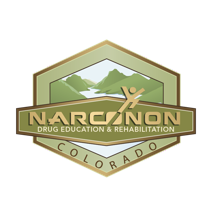Record Number of Overdose Deaths Feared in Colorado For 2020

The year 2020 so far has been one of the roughest years in modern history. It seems as though all 2020 has done is brought bad news, problems, political unrest, disease pandemics, murderous insects, imminent global war, and conspiracy theories by the bucketful. No matter where you are, 2020 has been a hard year for most of the country, while it’s been even harder for those going through addiction issues.
With the country quarantined to a certain degree and still practicing social distancing, community-based addiction support groups have been hit hard. Many people trying to get sober or stay sober rely on these support groups to get through each day. With many of these groups no longer meeting or meetings being conducted remotely via Zoom or some other virtual platform, sobriety has slipped away from many. This has led to the increased demand for rehabilitation and detoxification services, causing state-funded facilities to fill to the brim, with waiting lists that are completely unrealistic. As a result, the State of Colorado is preparing to see a record number of overdose deaths in 2020.
In 2019, Colorado saw a record high for overdose deaths. There was a slight decline in fatal drug overdoses in 2018, so the hope was the trend would continue in 2019. COVID-19 has been a major issue now for months and provisional data has now reported that as of July 31st, the state has recorded 534 drug overdose deaths. This is about half of where we were in 2019. There’s a bit of a lag in the reporting of overdose deaths, which means this initially reported number could actually be much higher. Scarier still, fentanyl is still causing the surges in fatal drug overdoses. Fentanyl has not only been found mixed into heroin and in fake pharmaceutical drugs, but fentanyl has also been found present in the cocaine and methamphetamine supplies.
COVID-19 has been a very stressful situation, to say the least. Many people have relied on drugs and alcohol to cope with the stress, job losses, financial insecurity, etc.
“Basically, what you’re looking at is events that are related to people, being out of work, you know—bad economic times—(and) having to be indoors a lot of the time. That has effects on people’s mental health, so it’s not just overdose deaths. We’re also expecting that we’re going to see an increase nationwide in suicides. We’re starting to hear about increased cases of child abuse, domestic violence.”
Andres Guerrero, who manages the Prescription Drug Overdose Prevention program at CDPHE (Colorado Department of Public Health and Environment) said: “Basically, what you’re looking at is events that are related to people… being out of work, you know—bad economic times—(and) having to be indoors a lot of the time. That has effects on people’s mental health, so it’s not just overdose deaths. We’re also expecting that we’re going to see an increase nationwide in suicides. We’re starting to hear about increased cases of child abuse, domestic violence.”
Rural areas of Colorado have been heavily impacted as well, with limited resources to combat the drug problem.
Hopefully, the tide starts to turn a bit. Once all of the issues with COVID-19 slowdown and the focus is placed back on the drug problem, we can start to reduce these numbers and refocus our efforts. Even though we’ve been in the midst of a worldwide pandemic, the addiction problem hasn’t gone away, we’ve just stopped paying much attention to it.
Sources:


